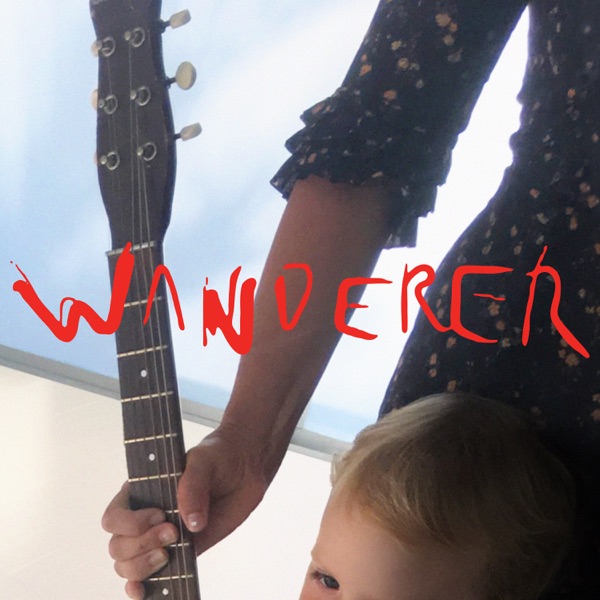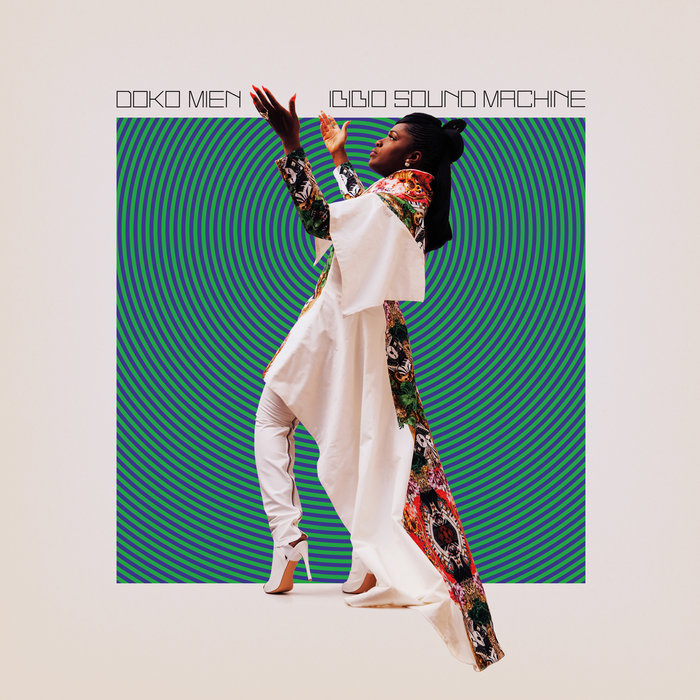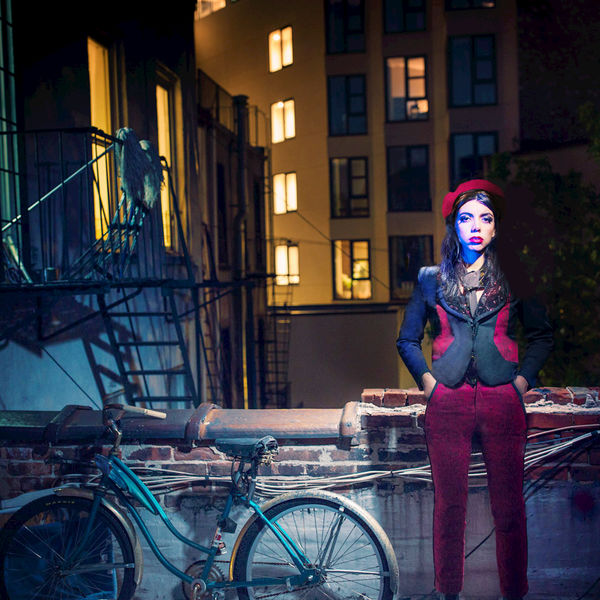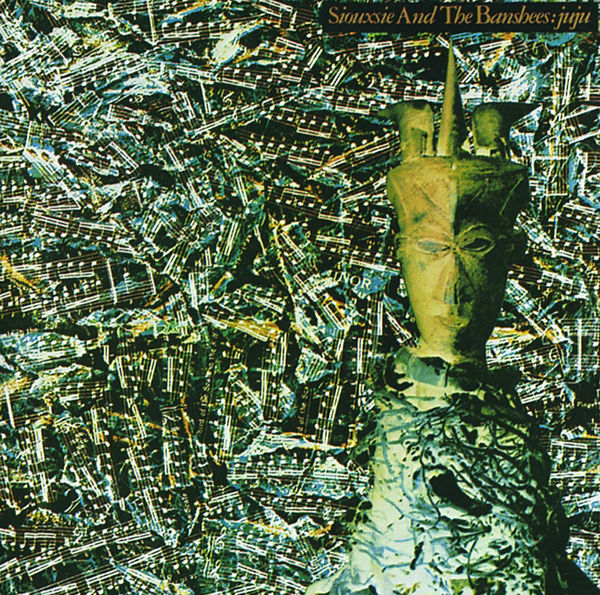Five Albums for Women’s History Month
March 21, 2019

-
Cat Power – Wanderer (2018)
Genre: Folk, blues, indie rock
Verdict: An album as personal as a whisper.
In 2006, when Atlanta-based singer/songwriter Chan Marshall aka Cat Power released her album “The Greatest,” she wasn’t lying by calling herself that. I find it hard to put Cat Power with the indie rock title, as she has more in common with the Carole Kings and the Nina Simones of the world than Pavement or Arcade Fire. Nevertheless, Cat Power has made a name for herself exploring the more intimate and stripped-down side of indie rock. Her latest album “Wanderer” is no exception to Marshall’s mission statement of intimacy. She comes with such an impenetrable confidence that many of the songs here feel like she’s speaking directly to you, the listener.
With that being said, “Wanderer” is one of her best albums in such a diverse and beautiful catalog. Sonically, she treads into very familiar territory with very minimal arrangements; some of the songs feature just her voice and piano, electric guitar, or acoustic guitar. The instrumentation never overpowers her voice or her lyrical content, which is a very good thing when trying to convey a sense of vulnerability. I personally like the way many of the songs here sound, but I do wish there was a lot more instrumental risks that could possibly complement the narratives that Marshall presents. Marshall thrives in space – there is more room to breathe, and more space to hear her whispers and sultry voice. It’s one of her strongest suits, and one that she performs so effortlessly. She makes personal look so easy and that’s what I’ve always loved about Cat Power.
The highlights of “Wanderer” include, but are not limited to, her ballads on “In Your Face”, the bluesy “You Get” and “Robbin Hood,” and her duet with Lana Del Rey on “Woman.” Let’s also not forget to mention her rendition of Rihanna’s “Stay.” I love how Marshall slows down the tempo on her version while also respecting the source material. Cat Power is an artist of range with an abundance of true expression and emotion. And twelve years later, Marshall proves why her title of “the Greatest” still rings true to this day.

-
Ibibio Sound Machine – Doko Mien (2019)
Genre: Afrobeat, dance
Verdict: Let’s get funky.
Ibibio Sound Machine are one of the most creative and infectious bands of the decade who deliver such a timeless sound. I was really impressed by their 2017 release “Uyai,” and since then, I have felt nothing but excitement for whatever they came out with in the future. The band, led by Eno Williams, are great at blending genres in a seamless fashion. Their sound will please dance fans, fans of traditional African music, and maybe even fans of disco, soul and post-punk.
Many of the lyrics are sung in Ibibio, an indigenous Nigerian language spoken in the country’s state of Akwa Ibom, and sometimes in English. While Ibibio Sound Machine’s style is naturally perfect to fill any dance floor, Williams’ lyrics also flirt with personal themes of empowerment for women, especially in songs like “Just Go Forward (Ka I So)” and “She Work Very Hard.” These themes of empowerment are just as important as the funky beats surrounding the lyrics.
Overall, “Doko Mien” is a very fun, booty-shaking album that never overstays its welcome. I love the grooves on songs like “Basquiat” and the sensual and soulful “I Know That You’re Thinking About Me.” “Doko Mien” does not deviate too far from what makes Ibibio Sound Machine so fun to begin with, offering an entire dance party in just 41 minutes, with some slower songs so people can catch their breaths from dancing so much. Nevertheless, “Doko Mien” proves that the band still got it and are always ready to get the party moving.

-
Hurray for the Riff Raff – The Navigator (2017)
Genre: Folk, Americana
Verdict: Nuyorican looks inwards, with a fist up.
No other decade in music history has had more female singer-songwriters front and center than in the 2010s. You have your Mitskis, St. Vincents, Angel Olsens, and Courtney Barnetts, just to name a few. Each artist I just mentioned have distinct personalities and sounds, but I want to focus on Alynda Segarra, frontwoman of Hurray for the Riff Raff.
A Bronx native who hitchhiked to New Orleans, she sought to discover the music of America and immersed herself in poetry and feminism. Segarra is also very loud-and-proud about her Puerto Rican heritage, an idea that remains vital to her 2017 work “The Navigator.” The band’s fifth album is a concept album about self-discovery whilst lamenting on the effects on colonization on the Puerto Rican nationality and identity.
Throughout listening to “The Navigator,” Segarra wears both her heart and influences on her sleeve – Patti Smith, the Greenwich Village folk scene, and salsa. Her most outstanding quality is the ability to blend all of these otherwise distinct styles into a seamless sound whilst telling compelling stories about her home, her identity, and the struggles in between.
Each song is heart-wrenching and theatrical. One of Segarra’s strongest qualities is to bring emotion front and center to songs by telling stories and not getting too carried away with what is happening musically. However, Segarra takes many musical risks throughout the album, especially with the salsa-infused “Rican Beach” and the tender piano balladry of “Pa’lante,” a rallying cry for those listening to keep fighting, forward and ever onwards. I am very excited for what Segarra and her band will do in the future.

-
Siouxsie & The Banshees – Ju Ju (1981)
Genre: Goth, post-punk
Verdict: Goth starts with her.
If Jane from the film American Beauty taught us one thing, it is that wearing all black is cool. But being goth is more than just wearing all black. Goth can be traced back to Mary Shelley’s Frankenstein and the poetry of Edgar Allan Poe as examples, but what does that have to do with post-punk duchess Siouxsie Sioux? Arguably, this has nothing and everything to do with Siouxsie and her music – her music and style was simply not born in a vacuum but rather the product of an evolution of embracing darkness, Victorian fashion, and the occult.
In the formation of her group, Siouxsie & The Banshees, they laid the foundation for the sonic and visual aesthetic of gothic music. A product of late 70s/early 80s Britain, the term “gothic rock” applied to bands with an edgy, gloomy sound derived from post-punk and underground rock music. And there is no album that better encapsulates the dark, vampiric sounds of gothic rock better than Siouxsie & The Banshee’s 1981 classic “Ju Ju.”
“Ju Ju” starts off with the track “Spellbound,” arguably one of Siouxsie’s most notable songs in her career, with killer guitar work from John McGeoch. The band come through with a very fun and bouncy aggression, which was not typical of the gloomy and super-serious sounds found throughout post-punk at the time. However, “Ju Ju” is still an intense listen that increases the tempo and volume every once in a while in songs like “Monitor” and “Halloween.” Siouxsie’s lyrics are cryptic like the music behind her, but still presents herself with a playfulness and intimacy that very few frontpeople could ever convey.
Her contemporaries of the time also contributed to what we know as goth today – Robert Smith, Ian Curtis, Andrew Eldritch, Peter Murphy – but on their 1981 classic “Ju Ju,” Siouxsie and her crew fully immersed themselves in the darkness by making such an engaging record that fully predicted the sound of punk rock to come. Although bands like the Cure, Joy Division, and Bauhaus released dark and brooding albums before “Ju Ju,” Siouxsie’s unique take on punk rock completely challenged notions of how femininity belonged in rock music altogether. Siouxsie has a wild and flamboyant personality, making her a perfect contender for one of punk rock’s best frontwomen of all time.

-
Weyes Blood – Front Row Seat to Earth (2016)
Genre: Psychedelic folk
Verdict: Heartbreak in dystopia.
Natalie Mering, under the name Weyes Blood, is probably the only singer who could pull off singing “YOLO” so beautifully (Other than Drake, obviously). Her “folk music of the near future” is steeped in the tradition of female singer/songwriters from the 1960s and 1970s, specifically Judy Collins and Joni Mitchell, to name a few. However, the music of Weyes Blood has a strange ethereal atmosphere that makes it directly represent the musical landscape of the current decade.
The title of this album in particular is very fitting, “Front Row Seat to Earth.” The album is very personal and gentle, as Mering laments on the human condition of love and communication in this post-smartphone world. However, her lyrics are much more abstract than they are blatant, making her one of today’s most wise (no pun intended) and deep songwriters. In the song “Generation Why,” where she sings Drake’s famous rallying cry as if it was sung by Karen Carpenter, she recounts her “going to see the end of days” as she hangs on her phone all day. Most likely this is referencing the way she is tuned into the world through social media, and seeing all the chaos, murder and horror unfolding as if we all are part of “this sinking ship.” But other songs throughout the album lament on failed relationships on songs like “Do You Need My Love” and “Seven Words.” Musically, the instrumentation and arrangement floats about in this very dream-like state that pushes closer into a meditative experience with every listen.
In an era of musicians who seek to sonically recreate the effects of psychedelic drugs using instruments (somehow), Weyes Blood not only represents a sobering clarity but a strong confidence as a singer/songwriter. She has an album coming out very soon entitled “Titanic Rising” that I cannot wait to hear, but for now, I enjoy basking in the dreamy wonder that makes “Front Row Seat to Earth” so captivating and leaves me so teary-eyed.














